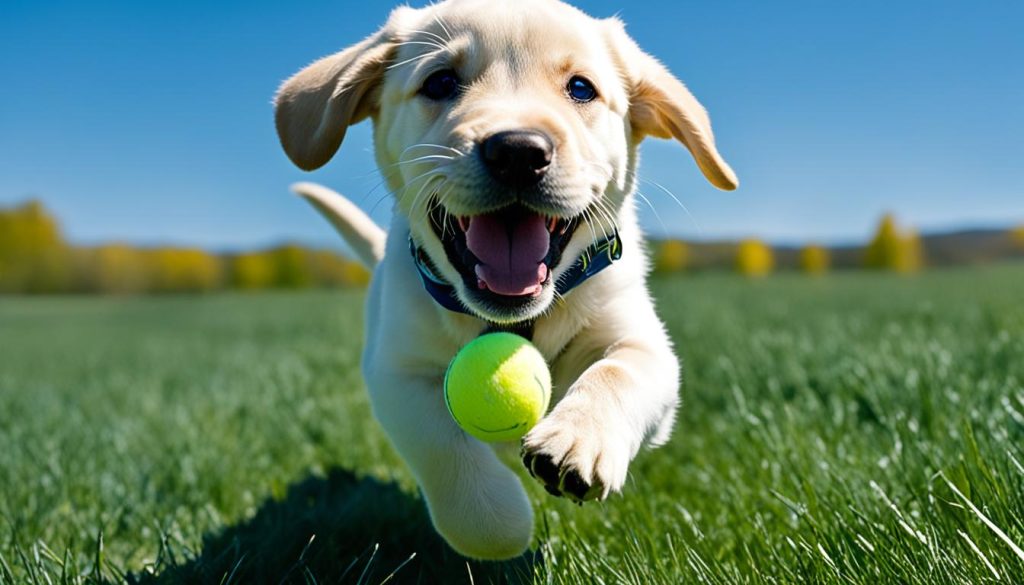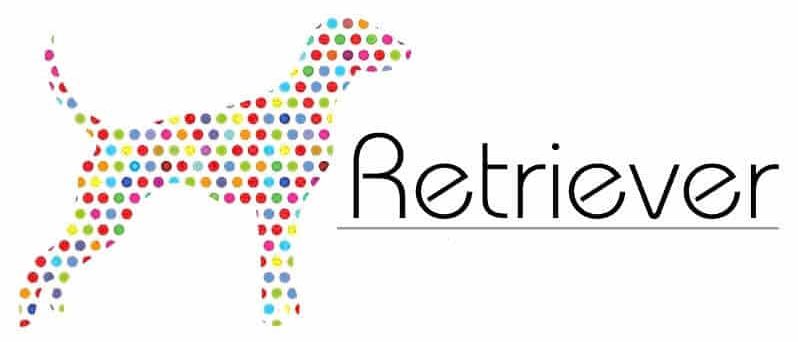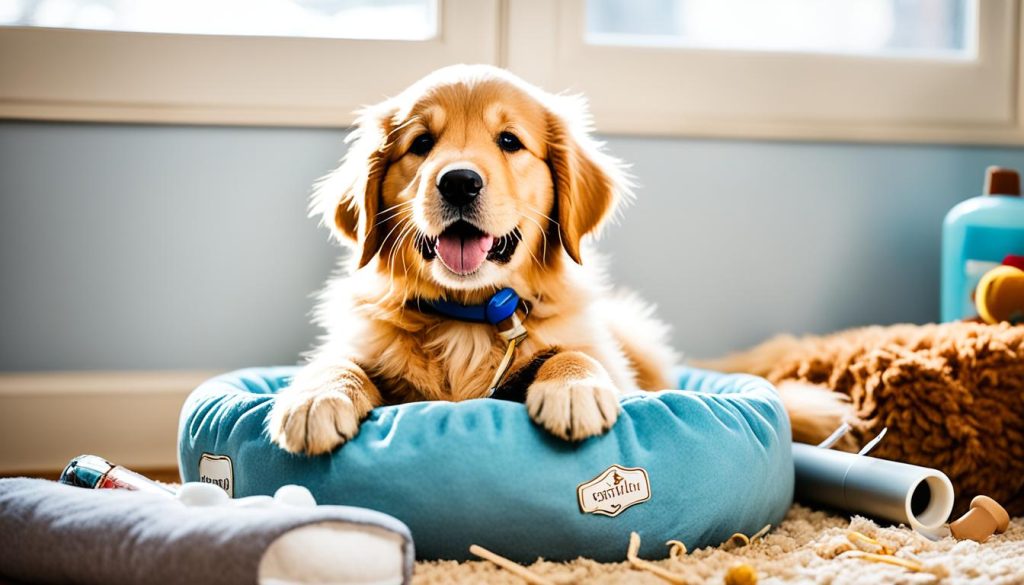Welcome a retriever puppy into your home, and embark on a fulfilling journey of companionship and responsibility. Opting for a golden retriever puppy or a Labrador demands an understanding of their requirements. It is crucial to acquire your new companion from reputable retriever puppy breeders, renowned for their focus on the health and temperament of their puppies. This beginning guide aims to give new owners a comprehensive overview on how to create a supportive environment for these adorable puppies.
Following these recommendations ensures the proper development of your retriever puppy and lays the groundwork for a lifelong, enriching bond. Consulting experts and providing continuous care and attention facilitates a peaceful living with your pet. Such efforts guarantee the full enjoyment of pet ownership, enhancing the well-being of both owner and retriever puppy.
Key Takeaways
- Seek out the best retriever puppy breeders for a healthy and well-tempered companion.
- Understand the specific needs of your golden retriever puppy to offer the best care.
- Create a conducive environment that nurtures the growth of puppies retriever.
- Invest in nurturing relationships with experienced veterinarians and trainers.
- Recognise that proper care results in the well-being of your cute retriever puppies.
Getting Started with Your Retriever Puppy

Welcome to your new labrador retriever puppy. This bundle of joy and ceaseless energy brings vibrancy into your abode. The ensuing weeks are crucial for instilling a foundation for a contented, sound upbringing. This is a primary step towards nurturing a balanced, trained retriever puppy.
Ensuring a safe environment is of utmost importance. Puppies exhibit an unending curiosity and vigour, necessitating a safe space for exploration. It’s vital to secure hazardous items and remove small, ingestible objects. Establishing a specific zone for eating, sleeping, and play is critical for consistency and comfort.
- Secure electrical cords away from prying mouths
- Remove toxic plants and household cleaners
- Set up a cosy sleeping area with a bed and blankets
- Choose toys suitable for a retriever puppy’s teething
As renowned canine behaviourist Dr. Clarice Rutherford notes, “Setting boundaries from day one conditions a puppy to learn its limits within a home environment.”
Training initiates as soon as your puppy enters your life. Employ positive reinforcement to teach basic commands like ‘sit’, ‘stay’, and ‘come’. Short, regular training sessions maintain your retriever pup’s focus. Incorporating play as a teaching mechanism is essential for their engagement and cognitive development.
| Training Focus | Benefits | Tools & Techniques |
|---|---|---|
| Obedience Training | Builds a foundation of discipline and command recognition | Clickers, treats, voice commands |
| Socialisation | Encourages behavioural adaptability and reduces anxiety | Puppy classes, meetups, family and friends interactions |
| House Training | Establishes important hygiene and house-care habits | Regular outdoor breaks, reward system, consistency |
Welcoming a labrador retriever puppy into your dwelling marks the beginning of a thrilling adventure, transcending mere playtime. It signifies a pledge to foster a nurturing setting, training, and importantly, a profound, enduring connection. Adhering to the aforementioned steps will ensure a joyful, healthy coexistence with your new four-legged family member.
Critical Health and Wellness Guidelines for Retriever Puppies
Maintaining optimum health in your retriever puppy demands a deliberate and informed approach. These puppies offer immeasurable happiness, reflecting the benefits of meticulous care. This segment delivers expert advice on protecting your puppy’s health via vaccinations, nutrition, exercise, and training.
Key Vaccinations for Healthy Retriever Puppies
Initiating your retriever puppy’s life with essential vaccinations offers them crucial protection. Vaccines guard against severe conditions like distemper, parvovirus, and hepatitis. Engage with a vet to devise a vaccine schedule tailored for your valued pup.
Proper Nutrition for a Growing Labrador Retriever Puppy
The dietary requirements of growing labrador retriever puppies are distinctly special. Their diet must ensure a proper mix of proteins, fats, and essential vitamins and minerals. Opting for high-quality feed is vital, given their quick growth and the high energy levels they possess.
Ensuring Adequate Exercise for Playful Retriever Pups
Labrador and golden retrievers, known for their playful nature, require consistent exercise for their physical health. A varied routine of walking, fetching, and swimming aids in developing their temperament and preventing behavioural problems.
Guidance on Training Your Retriever Puppy
Effective training of a retriever puppy is built on positive reinforcement and regularity. Early and engaging training sessions encourage obedience and etiquette. Making training enjoyable promotes a positive attitude in puppies, fostering a peaceful owner-pet relationship.
- Vaccination schedule adherence is essential for preventing infections.
- Dogs thrive on high-quality diets formulated for their specific growth needs.
- Daily exercise prevents obesity and stimulates mental health.
- Consistent training sessions forge an obedient and well-behaved companion.
Adhering to these guidelines ensures the raising of not only physically healthy and adorable retriever puppies but also emotionally intelligent companions. Whether you’ve chosen a labrador or another retriever strain, your puppy relies on your dedication to their overall well-being.
Conclusion
In conclusion, the comprehensive care advice outlined herein underscores the paramount importance of commitment to the wellbeing of retriever puppies. Whether you are tending to a golden or a Labrador retriever puppy, adherence to their healthcare, including vaccinations, and providing a nutrient-rich diet are indispensable. Additionally, ensuring they partake in sufficient physical and mental activities is vital. These elements are not optional but rather essential to responsible pet ownership.
The dedication to nurturing your furry companion fosters a deeply rewarding bond, which only grows stronger as the pup matures. Thus, it is crucial for owners of retriever puppies to remain well-versed and proactive in contemporary canine healthcare and training strategies. Engaging regularly with professional veterinarians and certified trainers is invaluable. Their expert guidance is tailored to meet the specific needs and situations of your retriever.
To reflect upon the grander scheme, the incomparable companionship, unconditional affection, and boundless happiness that a healthy retriever puppy brings into a home are beyond measure. By providing thoughtful care, your retriever, be it golden or Labrador, will not merely be a pet. Instead, they will evolve into an integral member of your family’s fabric. Let us be perpetually inspired by these tenets, to guarantee our beloved canines a life as enriching and jubilant as the one they bestow upon us.
FAQ
What are the initial steps in caring for a new retriever puppy?
Upon introducing a new retriever puppy to your domicile, prioritising their comfort and security is pivotal. One must ensure the provision of a cosy sleeping quarter, implement measures to safeguard the puppy within the household, and delineate a consistent regimen for nourishment, recreational engagement, and lavatory utilisation. It is indispensable to initiate early socialisation and foundational training to facilitate the puppy’s adaptation and instil exemplary conduct.
Where can one find the best retriever puppy breeders?
The quest for distinguished retriever puppy breeders often leads to consultations with esteemed breed clubs, professional associations, or veterinarian endorsements. Commitment to thorough research and onsite evaluations of breeders is imperative, with a focus on ethical breeding standards, the health and welfare of the canines, and the provision of a salubrious and supportive environment for the puppies.
How should you start training a labrador retriever puppy?
Commencing training for a labrador retriever puppy upon their arrival is advisable. Initial instruction should cover elementary commands such as “sit,” “stay,” “come,” along with toilet training. Employing positive reinforcement techniques, including treats and commendations, proves most efficacious. Upholding consistency and demonstrating patience, given that puppies assimilate through repetitious and affirmative engagements, is crucial. Participation in puppy training courses is recommended for a structured educational experience.
What are the key vaccinations for healthy retriever puppies?
Vaccinating healthy retriever puppies should commence between 6 to 8 weeks of age. Essential immunisations encompass canine distemper, parvovirus, hepatitis, and rabies. A veterinarian will prescribe an immunisation timetable and might suggest further vaccinations contingent upon the puppy’s lifestyle and exposure risks.
What type of nutrition is recommended for a growing Labrador retriever puppy?
Nutritional provisions for a developing Labrador retriever puppy necessitate a diet abundant in proteins, fats, carbohydrates, vitamins, and minerals. Given their unique nutritional requisites distinct from adult dogs, it is prudent to feed them premium puppy food, specially formulated for large breeds. Maintaining strict portion control and adherence to a feeding schedule pertinent to their growth phase is essential. Any dietary adjustments should be conducted under veterinary supervision.
How much exercise does a playful retriever pup need?
A playful retriever pup demands consistent physical activity to sustain health and moderate their vigorous energy levels. The rule of thumb suggests 5 minutes of exercise per month of age, twice daily, until maturity. Activities may include walks, secured area playtimes, and interactive games. Caution is advised against excessive exercise in juveniles, due to their developing skeletal structure.
What guidance is there for training your retriever puppy?
Effective training of your retriever puppy encompasses fundamental obedience, toilet training, and socialisation. Embrace positive reinforcement techniques, ensure command consistency, and methodically introduce new directives and behaviours. Availing of puppy training classes is beneficial for expert guidance and social engagement opportunities. It is vital to conduct training sessions that are brief, regular, and engaging for the puppy.

